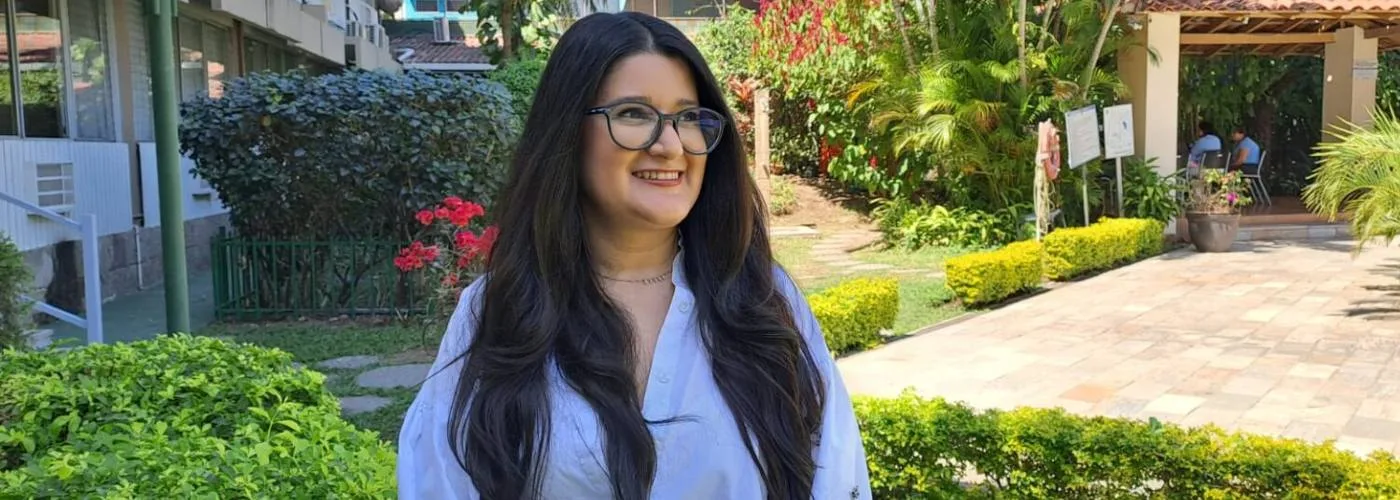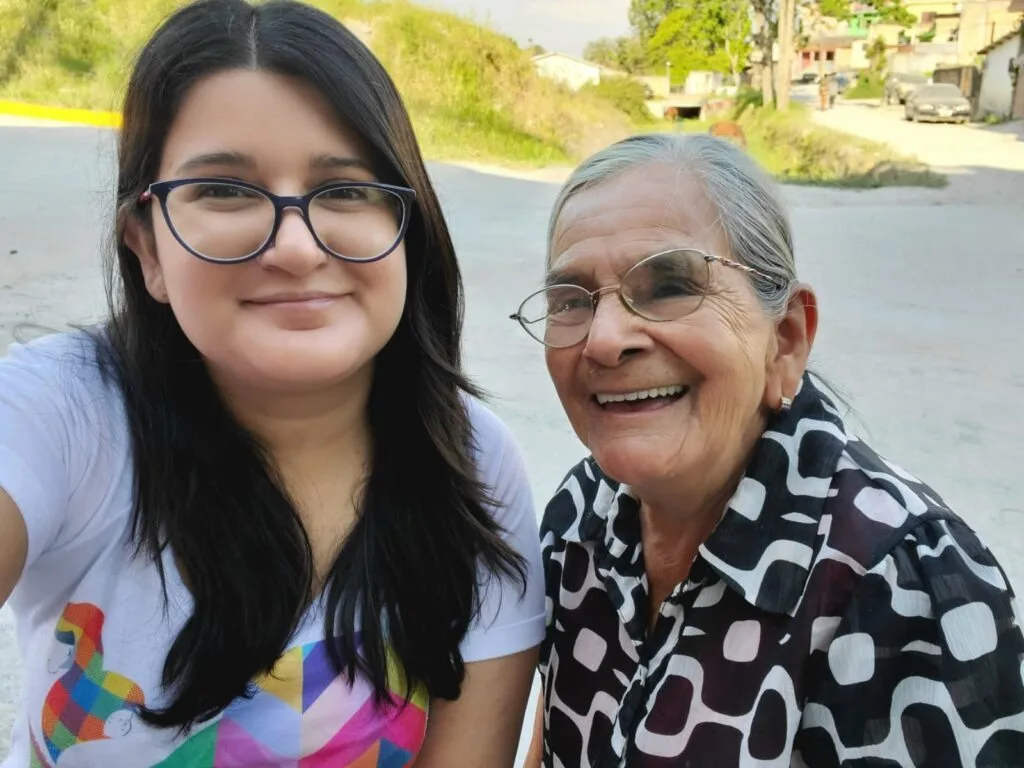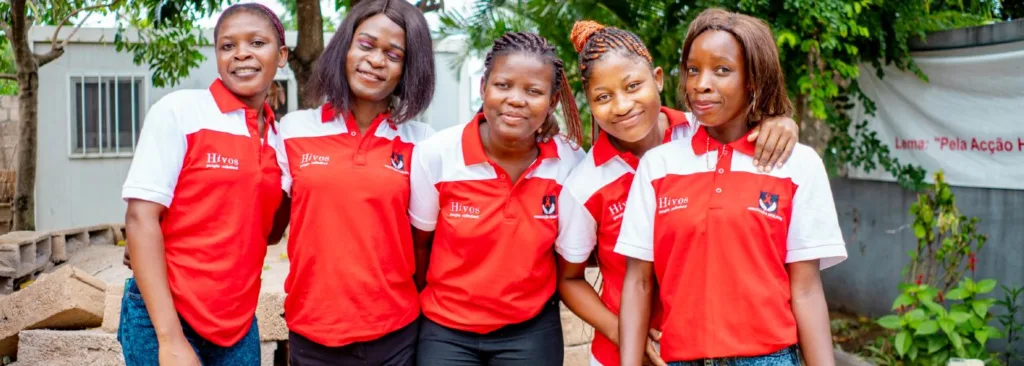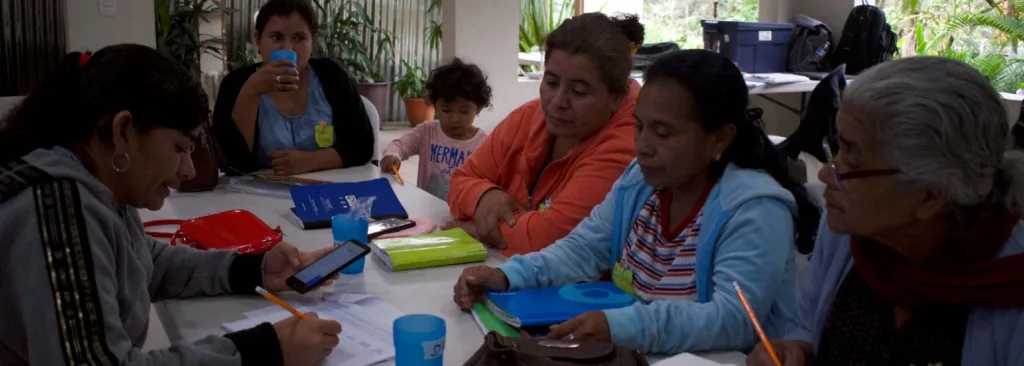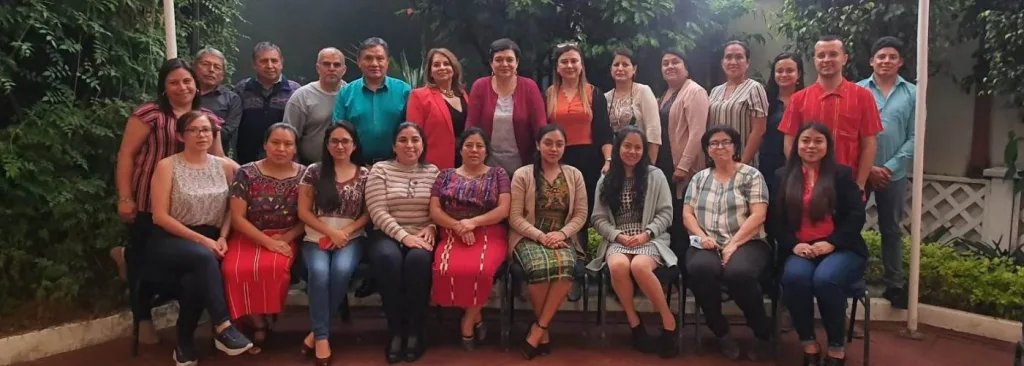By Gabriela Melgar – Hivos Latin America Regional Communication Officer
I’ve listened to the interview I did with Gabriela Portillo many times now. Ideas for an article keep popping into my head without rhyme or reason. I’m one of those who still likes to organize them on paper first and then struggle with them on a computer screen.
I going to start with the local context: a community located in Arenales, Honduras, a region inhabited mainly by the Indigenous Lenca people. It’s known for the friendly welcome you get and the promise that you will always eat well. In the past, no organization had ever done community work here. This changed when the Energizing Women’s Power in Central America project kicked off, carried out by Hivos and funded by Global Affairs Canada.
Now a group of women in Arenales is learning business skills, not only to improve their livelihoods, but above all to break the stereotypes and gender roles that are still ingrained in the community and the entire country. It’s through Gabriela’s eyes, a member of the Women’s Rights Center, a project partner, that I’ll try and tell you about the changes the project has brought.
Honoring the paths our female ancestors carved out
Gaby was born thirty-four years ago in the small city of Santa Rosa de Copan. She recalls that since she was a teenager she joined groups that defended women’s rights and tried to reduce the inequality that affect women’s lives in so many ways. This is how she got to know rural areas well and it’s what inspired her to devote her life to fighting for the same causes.
Gaby’s activism also inspired her to study medicine. She’s now a health professional working to make sure more women know their sexual and reproductive rights and to change the wider determinants of health so public services improve and women can fully enjoy these rights.
Gaby sees her grandmother as a pioneer. She remembers that in one of their many conversations her grandmother pointed out that Gaby’s generation had already been born with the right to vote. In Honduras it’s barely been 70 years since women could vote. Gaby looks back with admiration on the women who fought to win that right, granting generations to come what she considers the universal right to citizen participation – the foundation of democracy itself.
But her grandmother did not have the right to vote. Nor did she have the right to contraceptives, which Gaby does enjoy. Her grandmother would tell her, “You have the right to decide, something I didn’t have.” These words have remained engraved in Gaby’s memory.
Her grandmother’s story and that of many other women led Gaby to honor the lives and journeys of these brave pioneers with her own actions. A few months ago, together with another group of women, she wrote a book called “Chronicles of the Honduran feminist struggle. Building history” about the historical struggles of women in Honduras to stand up for their rights get them guaranteed and enforced.
Our bodies, the first territory that women must defend
In Honduras the political context is extremely difficult. The country is dominated by conservative forces with great sway over the collective imagination. Talking about sexual and reproductive rights is still taboo. It’s censored in public and only talked about in private. For Gaby, it’s incredible that until a year ago Honduran women had no access to the Emergency Contraceptive Pill (PAE). It was only thanks to the lobbying done by many women and organizations that legal access to the PAE through public health services was finally achieved.
As a doctor, Gaby has worked closely with Indigenous Lenca midwives. Although their ancestral knowledge is in her view a valuable contribution to Honduras’ state health service, their work is neither formally recognized nor financially rewarded. For Gaby, the fight for women’s bodily autonomy is an unending, daily struggle fought under the same banner as all the women who fought before them.
Gender roles and unpaid labor
Back to Energizing Women’s Power in Central America. Gaby contributes her knowledge as an educator and gives workshops on gender roles, the care economy, feminist economy, and what these concepts historically have meant for women
The workshops aim to help women understand and recognize that the housework and care work they do for their families, which often comes on top of jobs outside the home, is unpaid labor that supports the lives of others and maintains social and community dynamics.
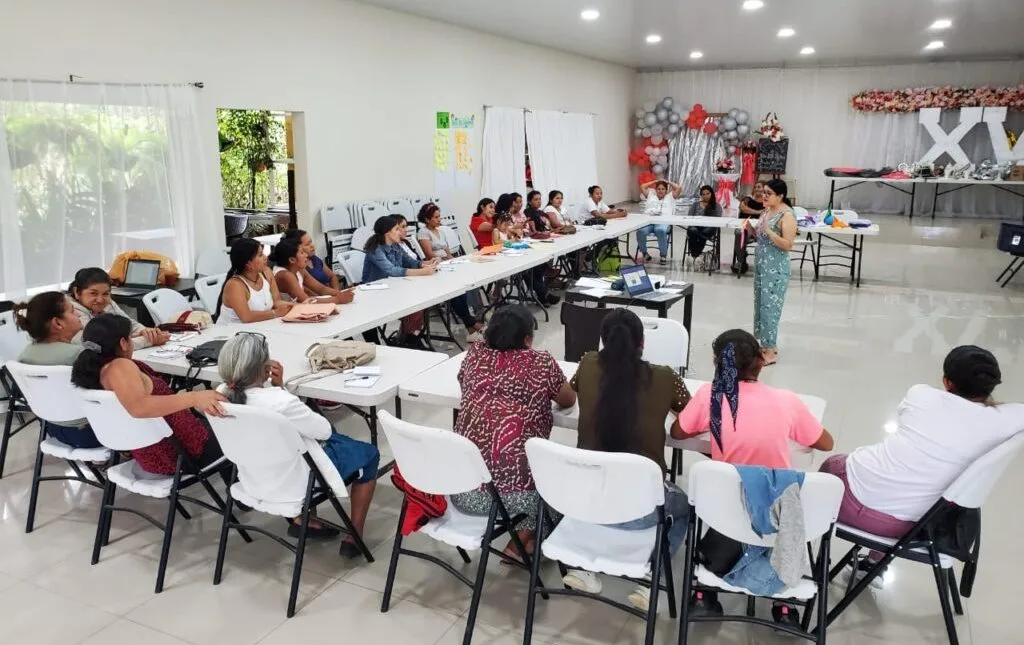
Questioning these gender roles and talking about who does household and care tasks is also a way to sensitize men about their co-responsibility and the need to redistribute these roles. For Gaby, it’s essential to focus on changing men’s attitudes, but she recognizes it’s a huge challenge because men don’t want to invest the time.
But the fact that the trainees have actually started making changes at home in terms of care and housework feels like a triumph for Gaby. “When they come in and say, ‘I don’t ask for permission to come here anymore. I just tell my family I’m going to my workshop at such and such a time,’ I feel truly victorious,” she says.
Business skills and economic independence
Gaby has also seen important changes in the economic status of women in Arenales. To increase their independence, the project has implemented specific business workshops where they can improve their business ideas, expand operations, and learn how to separate their personal finances from the business.
“They are taking on roles in decision-making spaces. They are leading and participating in community spaces, and some of their businesses have already been able to create jobs for family members. It’s so exciting to see these changes,” she tells me.
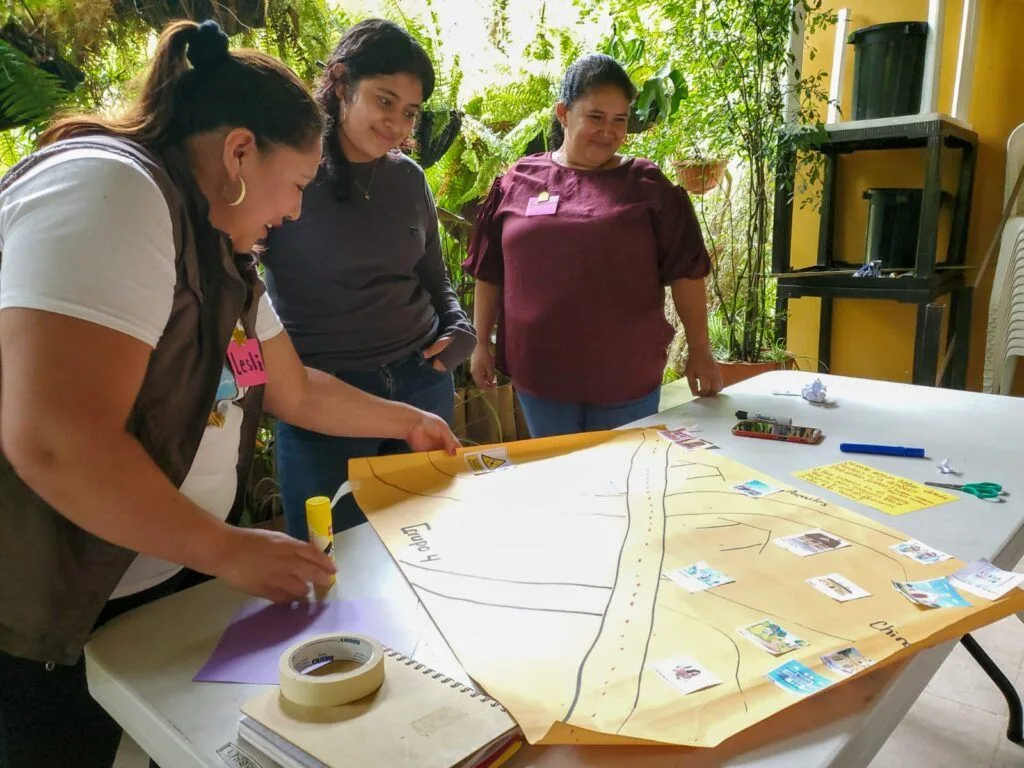
Small steps towards closing big gaps
She tells me she considers herself a dreamer and optimist, that she thinks small grains of sand make mountains, and it’s true. The Arenales community is growing, women are participating more in society, taking their businesses forward, and challenging gender norms to achieve greater personal freedom. All this shows that small steps like these create communities and societies where women can enjoy economic justice and slowly close social and economic gaps.
Our conversation has really made me think about how necessary it is to question what we learn from a young age. That housework and care work are a sign of love, when in fact we know that this narrative is firmly kept in place by the capitalist and patriarchal system we live in because our unpaid work is what keeps it afloat.
Recognizing our lineage as women is another way to redefine that narrative of love and change the patterns and norms that keep us at a disadvantage. Because yes, feminists believe that love and tenderness sustain others, but it is also necessary to redefine the forms they take.
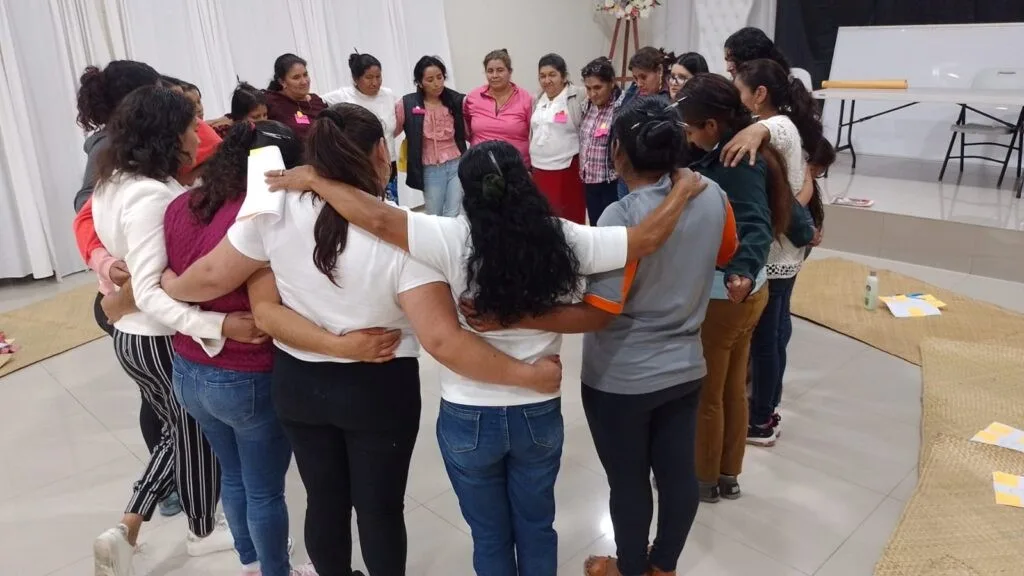
Defend our rights and take inspiration from others
Gaby’s story also inspired me to think about the networks of women that support us and those we build in our daily lives. My network is wonderful. I’m infinitely grateful for it and I wish all the women in the world could have one like it. I also thought about how comforting it is to know that despite the waves of conservative and patriarchal attacks we face, we’re defending our rights together. Our own tide is also swelling, and no one’s going to stop it. This Women’s Month I’m resisting more than ever. I embrace and am inspired by other powerful women. Because this is a collective fight. We’re here, present, all together. And we’ll see you on the streets!
You can read the original post in Spanish here.

